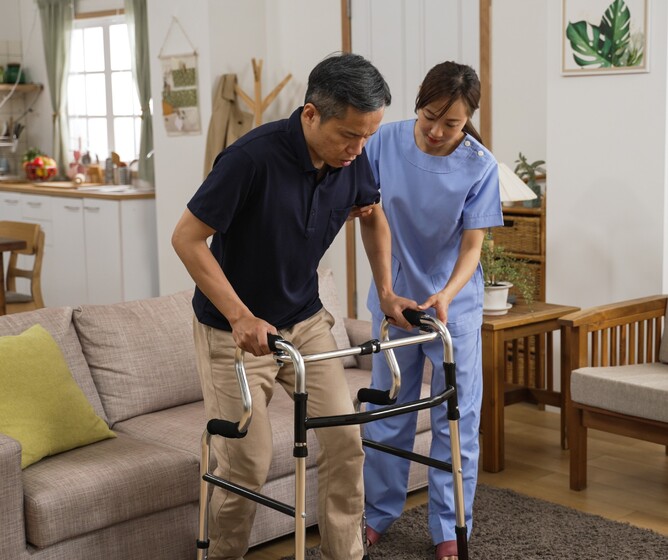The Importance of Early Intervention: Occupational Therapy Techniques for Stroke Recovery
Stroke, a medical condition that occurs when blood supply to the brain is interrupted, can have a devastating impact on an individual's physical and cognitive abilities. The timely initiation of rehabilitation, particularly occupational therapy (OT), is crucial in improving outcomes for stroke survivors. We will explore the significance of early OT intervention and delve into key techniques used to aid in stroke recovery.
Understanding Stroke and Its Impact
A stroke occurs when blood flow to the brain is disrupted, either due to a blood clot (ischemic stroke) or bleeding (hemorrhagic stroke). The affected area of the brain controls specific functions, and damage can result in a range of challenges. Common physical difficulties include weakness, paralysis, loss of balance, and sensory impairments. Cognitive deficits may encompass difficulties with memory, attention, problem-solving, and communication. Emotional challenges such as depression, anxiety, and frustration are also frequently encountered by stroke survivors.
The earlier rehabilitation commences after a stroke, the greater the potential for recovery. The brain possesses remarkable plasticity, enabling it to reorganize and form new connections. Prompt intervention maximizes this neuroplasticity, enhancing the chances of regaining lost functions and improving overall quality of life.
The Role of Early Intervention in Stroke Recovery
Early intervention is essential for maximizing neuroplasticity, the brain’s remarkable ability to reorganize and form new connections. The earlier therapy begins, the better the chances of improving movement, cognitive function, and overall independence. Occupational therapy, initiated soon after a stroke, focuses on retraining the brain and body to perform everyday tasks, helping individuals regain independence.
Starting therapy early also helps prevent secondary complications such as muscle atrophy, contractures (shortening of muscles and tendons), and depression. Early rehabilitation interventions are critical for restoring function and minimizing the long-term impacts of the stroke.
Key Occupational Therapy Techniques for Stroke Recovery
Occupational therapists employ a variety of techniques to address the unique needs of stroke survivors. Some key techniques include:
Motor Skill Re-Education: Activities are designed to retrain the brain and body in performing everyday tasks, focusing on coordination, strength, and range of motion.
Constraint-Induced Movement Therapy (CIMT): This technique involves restraining the unaffected limb to encourage the use of the affected limb, promoting neuroplasticity and improving function.
Sensory Re-Education: OT professionals utilize activities to help retrain the brain in responding to sensory stimuli, such as touch, temperature, and proprioception (sense of body position).
Adaptive Equipment Training: Assistive devices like grab bars, modified utensils, and splints are introduced to support daily activities and enhance independence.
Cognitive Rehabilitation: Exercises and activities are designed to improve memory, attention, problem-solving, and other cognitive functions affected by the stroke.
Home and Environmental Modifications: OT professionals assess the patient's home environment and recommend modifications to create a safe and accessible living space.
The Collaborative Role of the Allied Health Team
Occupational therapists often work alongside other allied health professionals such as physiotherapists, exercise physiologists, and dietitians to create a comprehensive, personalized recovery plan. This multidisciplinary approach ensures that all aspects of a patient’s recovery are addressed. Family and caregiver involvement is also crucial, as their support and engagement in the rehabilitation process can significantly enhance recovery outcomes.
Conclusion
Early intervention is crucial for stroke recovery, and occupational therapy plays a vital role in maximizing outcomes. By addressing both physical and cognitive challenges, OT professionals help stroke survivors regain independence, improve their quality of life, and rebuild their lives after this debilitating condition.
If you or someone you know has experienced a stroke, consider seeking the help of an occupational therapist. At Holistic Strength, our team of experienced OT professionals is dedicated to providing personalized stroke recovery programs. Contact us today to learn more about how we can assist you on your journey to recovery.
